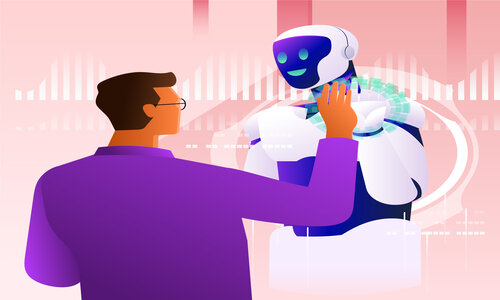
As healthcare embraces this technology, AI and FHIR will drive a future were data flows effortlessly, transforming patient care.
The integration of AI in medical devices is revolutionizing healthcare by enabling smarter diagnostics, personalized treatments, and real-time monitoring. However, for these devices to truly transform patient care, they must share data seamlessly with healthcare systems like electronic health records (EHRs). Fast Healthcare Interoperability Resources (FHIR) provides a standardized way to achieve this, ensuring that AI-powered devices, such as smart insulin pumps or heart monitors, communicate effectively with hospitals, clinics, and patient apps. This article explores how AI in medical devices leverages FHIR for seamless data sharing, its benefits, challenges, and impact on healthcare delivery.
FHIR, developed by HL7, is a global standard that simplifies how healthcare systems exchange data. It organizes information—like patient vitals, lab results, or medication records—into structured formats that different systems can understand. For AI in medical devices, FHIR acts as a bridge, allowing devices to send critical insights, such as a patient’s glucose levels or heart rhythm alerts, to EHRs, doctor’s dashboards, or patient smartphones. This interoperability ensures that data flows smoothly across the healthcare ecosystem, enabling coordinated care.
AI in medical devices enhances their ability to analyze data and generate actionable insights. For example, a wearable device might use AI to detect irregular heartbeats or predict a diabetic patient’s risk of hypoglycemia. FHIR ensures these insights are shared effectively:
For instance, an AI-powered ECG monitor might detect an anomaly and share it via FHIR with a hospital’s EHR, alerting a cardiologist to review the patient’s case immediately.
Integrating AI in medical devices with FHIR offers significant advantages:
For example, a hospital using AI-driven infusion pumps with FHIR implementation can adjust medication doses in real time, reducing errors and improving outcomes.
Despite its promise, this integration faces hurdles:
The integration of AI in medical devices with FHIR is a game-changer for healthcare, enabling seamless data sharing that connects devices, clinicians, and patients. By delivering real-time, actionable insights, this synergy improves care quality, boosts efficiency, and empowers patients. Despite challenges like compliance and compatibility, the benefits—faster interventions, reduced errors, and scalable systems—are undeniable.
© 2024 Crivva - Business Promotion. All rights reserved.